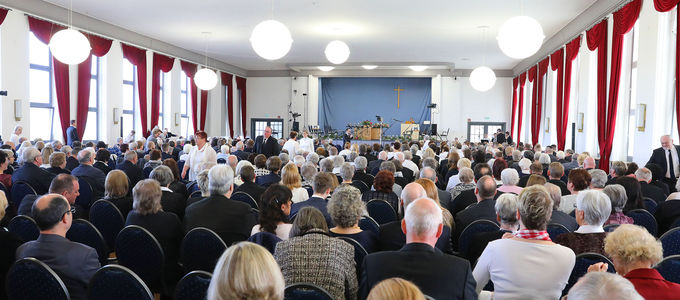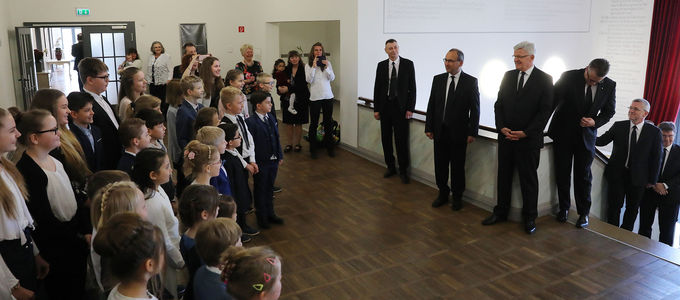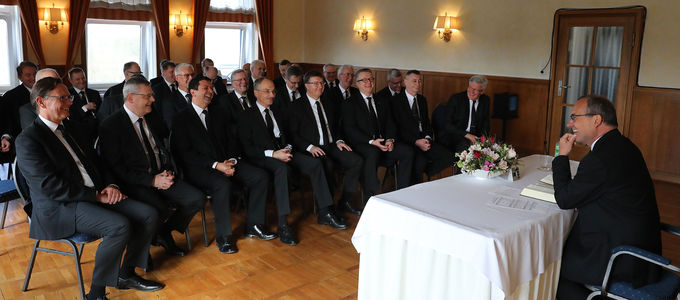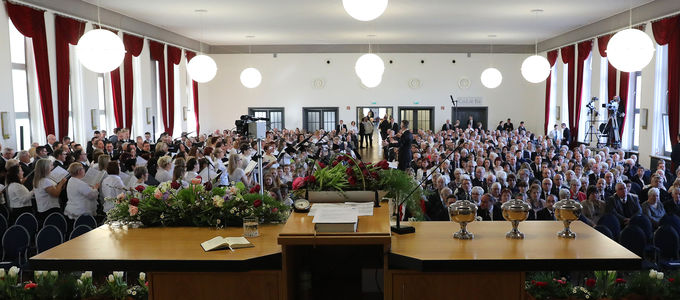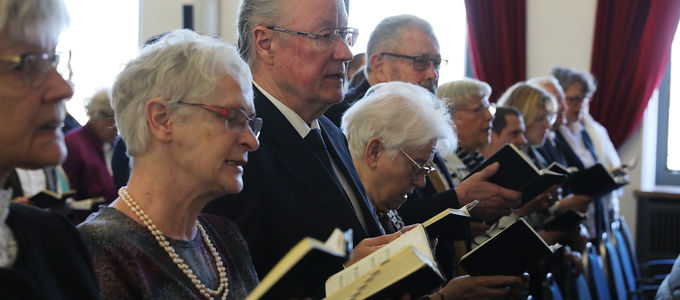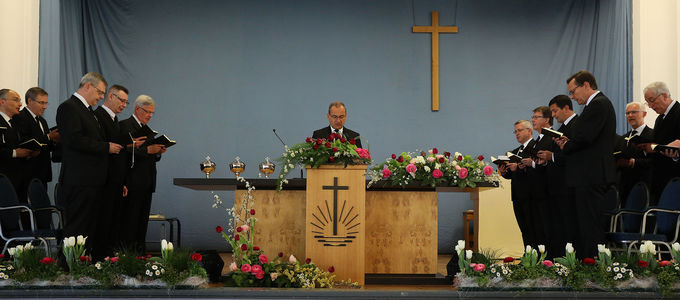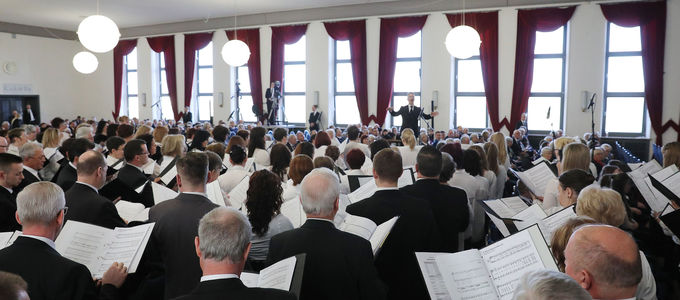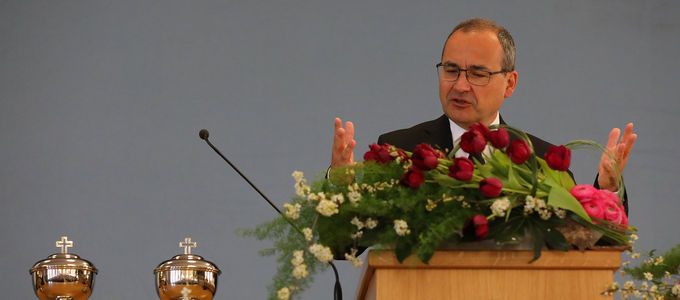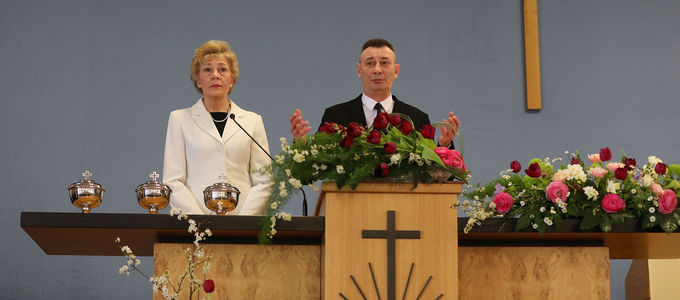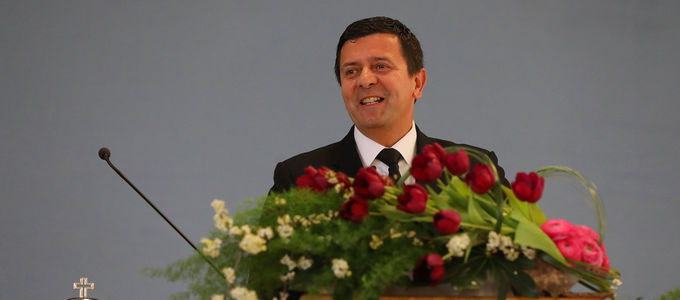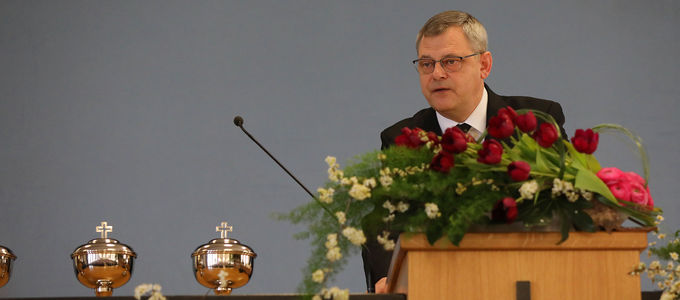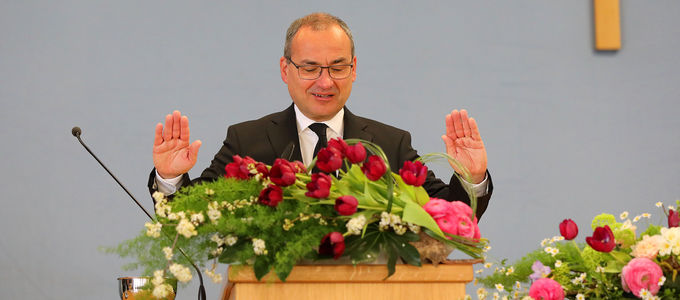Seeing both God and man the right way
Jesus Christ died so that mankind may live. “Did anyone necessarily need to be punished so that God could be well-disposed to us again?” asked the Chief Apostle. We find the answer in the Bible—and it is rather surprising.
“And you know that He was manifested to take away our sins, and in Him there is no sin.” — This Bible text from 1 John 3: 5 was the basis for the divine service in Dessau, Germany on 24 March 2019. Did Jesus have to die because God was hurt or offended? Did He have to pay to make things right again?
The three works of the devil
“This would certainly cause us to arrive at a rather strange image of God,” said Chief Apostle Jean-Luc Schneider. “As I occupied myself with this thought, I stumbled upon these words of John, which are found in the first epistle of John.” He went on to explain verse eight in particular: “Jesus did not come in order to suffer and to die. He came ‘that He might destroy the works of the devil!’”
“Well, what are the works of the devil?” His response: first of all, the evil one has given mankind a false image of God—“He wants to keep certain things to Himself. You cannot really trust Him.” And as a result, the fellowship between man and God was destroyed. And ultimately, the fellowship of human beings with one another was also damaged.
The true image of God
“The Son of God came to this earth in order to destroy these works of the devil,” explained the Chief Apostle. “First of all, He came to show us the true image of God. He wanted to show mankind who God really is, and that God is the God of love!”
He came to mankind in order to have fellowship with them, and in order to show them: “I am on your side.” And how! “He had absolutely everything in common with every other human being. He even felt hunger and thirst. He had to suffer. He had to die. He was true Man. He even surrendered to death because this experience is part of what it means to be human.”
True fellowship
It was also important to destroy the other works of the devil: Jesus “wanted to restore the fellowship between God and man, as well as the fellowship of human beings between one another.”
“Despite everything that He suffered, despite the power of the evil one—which really unfolded in dramatic fashion—He preserved His relationship with God,” emphasised the Chief Apostle. “Despite all the disappointments, despite all the weaknesses of others, His fellowship with, and His love for, His neighbour remained unchanged.”
A shared victory
In His love, the Son of God simply tells mankind: “I have overcome evil. You do not have to overcome it the same way I did. As long you as you believe in Me, you can share in My victory.”
“Well then, in what must we believe?” asked the Chief Apostle. The answers are as follows:
- “If we want to share in the victory of Jesus Christ, we must believe in God as Jesus revealed Him to us. We believe that God is the truth. We believe that God is love.”
- “We believe in Jesus Christ, which means we believe in His incarnation, we believe in His death—that is, in His sacrifice—we believe in His resurrection, and we believe in His return!”
- “We believe that He is the absolute reference in order to define what sin is—and what it is not. If your relationship with God is like the relationship between Jesus Christ and God, then you will not sin. If you have the same attitude toward your neighbour as Jesus Christ, then you can be sure that it is not a sin!”
The conclusion: “Those who believe in this way will share in the victory of Jesus Christ. — Neither the activity of the evil one, the weaknesses of mankind, the sinfulness of mankind, nor all the injustices we have experienced are to disturb our fellowship with God, nor should they prevent us from enjoying true fellowship among one another.”
Article info
Author:
Date:
Keywords:
Andreas Rother
22.05.2019
Germany,
Chief Apostle,
Divine service





